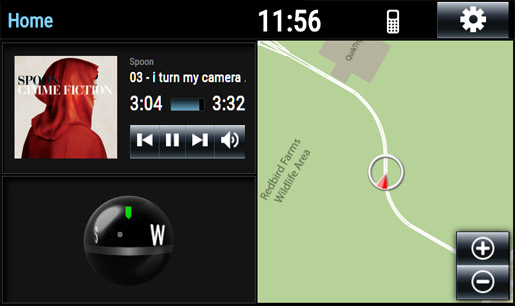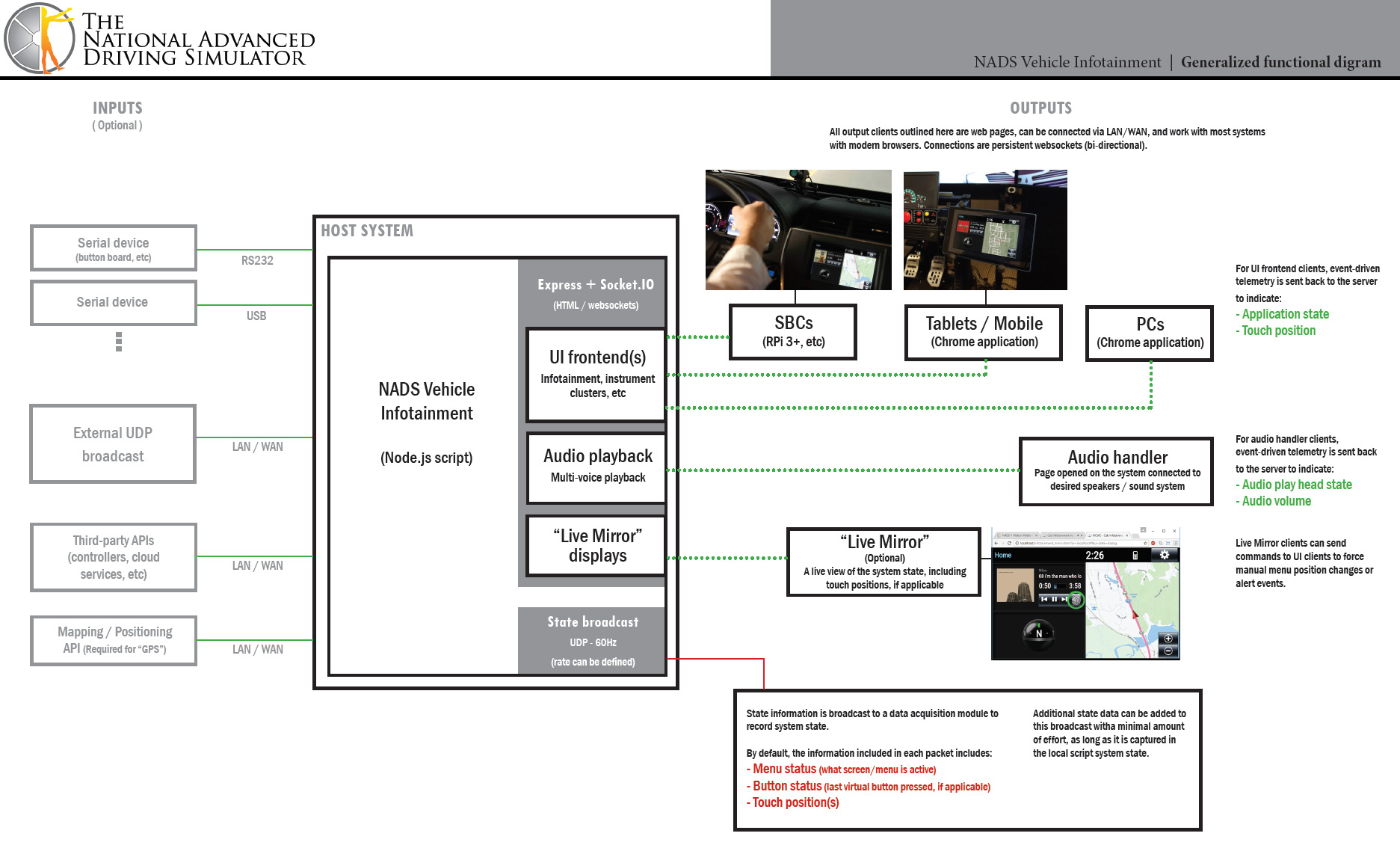Difference between revisions of "Infotainment System"
Steve Cable (Talk | contribs) (→Architecture) |
Steve Cable (Talk | contribs) (→Host script) |
||
| Line 36: | Line 36: | ||
=== Host script === | === Host script === | ||
| − | The | + | The host script operates as the beating heart of the Infotainment system. It manages the services for the interfaces, listens to variable stream information from a miniSim, coordinates interface input, and broadcasts system state data back to the miniSim. |
For it's real time interface to a miniSim, the Infotainment system leverages the [[Route Table]] to supply miniSim variable data streams (speed, position, ...) as well as write it's own back to the miniSim's shared memory. | For it's real time interface to a miniSim, the Infotainment system leverages the [[Route Table]] to supply miniSim variable data streams (speed, position, ...) as well as write it's own back to the miniSim's shared memory. | ||
| − | |||
=== Audio handler(s) === | === Audio handler(s) === | ||
Revision as of 22:22, 23 May 2019

The standard system available with miniSim models a typical OEM infotainment system including the following functionality:
- Radio (requires internet connection)
- MP3 playback
- Navigation (NADS Springfield map only)
- Platform Independent (iOS, Android, Windows, Raspberry Pi)
Contents
Architecture

In general, the Infotainment System can be logically broken down into three parts: the host script, the audio handler(s), and display/input pages.
Host script
The host script operates as the beating heart of the Infotainment system. It manages the services for the interfaces, listens to variable stream information from a miniSim, coordinates interface input, and broadcasts system state data back to the miniSim.
For it's real time interface to a miniSim, the Infotainment system leverages the Route Table to supply miniSim variable data streams (speed, position, ...) as well as write it's own back to the miniSim's shared memory.
Audio handler(s)
By default, a single audio page (infotainment_audio.htm) is included. This page can handle 3 channels of stereo playback:
- Media playback
- Alert (temporarily mutes media playback on play)
- Notify
These are the first three types
Display/input pages
This is where it gets interesting.







